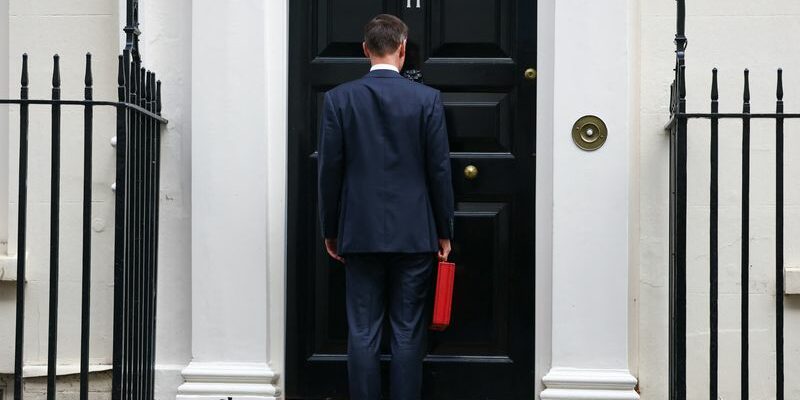by David Milliken and Kylie MacLellan
LONDON (Reuters) – The British Conservative government announced cuts in social security contributions for employees on Wednesday, drawing on its emergency reserves, a few months before legislative elections which promise to be difficult for Prime Minister Rishi Sunak.
Presenting his draft budget to Parliament, Finance Minister Jeremy Hunt confirmed a two percentage point cut in social security contributions, the second in less than four months, for a total gain of around £900 ( 1,051 euros) per year for the taxpayer.
“Because of the progress we have made, because we are responding to the Prime Minister’s economic priorities, we can today help families not only through one-off measures to help with purchasing power, but through tax cuts permanent”, explained the Chancellor of the Exchequer.
Jeremy Hunt unveiled other support measures including a freeze on fuel taxes for the 14th year, the extension of the freeze on taxes on alcoholic beverages and the continuation of an aid program for low-income households.
As a result of this spending, the government’s “fiscal margin” is now reduced to less than £9 billion, according to government officials, the amount available for new spending or revenue reductions without jeopardizing the target. reduction of public debt over a five-year horizon.
The Office for Budget Responsibility (OBR), the equivalent of the Court of Auditors across the Channel, estimated that this reduced margin represented only a “small fraction” of the risks incurred by the British economy in the event of non- compliance with commitments.
TIGHTENING OF RULES FOR “NON-DOM”
On
Maintaining government objectives will depend “on the extremely rigorous application of spending plans which will involve cuts to many public services”, he explained.
Jeremy Hunt has not unveiled new measures to further tighten the grip on public spending, the reduction plan of which is considered implausible by many analysts and will constitute a heavy legacy for the winner of the next elections.
Several British municipalities have already gone bankrupt and the number of cases filed in court reached a record last August.
To obtain some additional revenue, Jeremy Hunt announced the extension for one year of an exceptional levy on the profits of energy groups, the creation of a new tax on electronic cigarettes or the increase in a tax on travel in non-economy class aircraft.
He also announced a tightening of the rules applicable to the overseas income of “non-dom”, taxpayers living in Great Britain but declaring their main domicile abroad. After four years of residence in Britain, they will be subject to tax on their income earned abroad, Jeremy Hunt said.
The Labor Party, which enjoys a large lead over the Conservatives in voting intentions, advocated a similar measure.
The British government is now counting on growth of 0.8% this year after a recession in the second half of 2023, a forecast slightly revised upwards compared to last November (+0.7%).
The OBR now forecasts UK GDP growth of 1.9% in 2025, and 2.0% in 2026 (instead of 1.4% and 2.0% previously).
(Jean-Stéphane Brosse for the French version, edited by Blandine Hénault)
Copyright © 2024 Thomson Reuters
